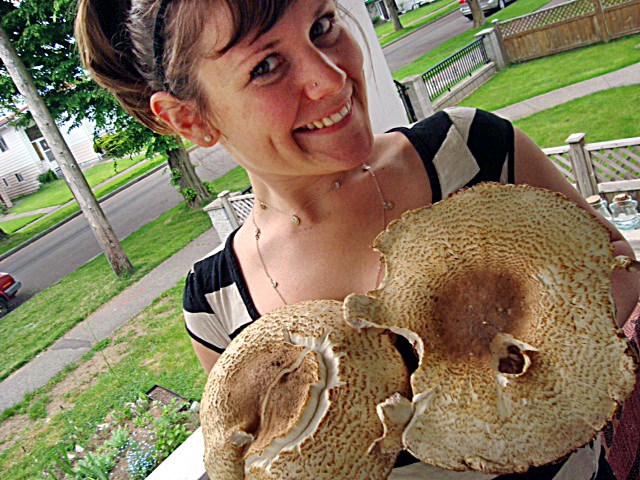Anyone who lives in Vancouver will tell you they do so for two reasons: The close proximity to nature, and the way it influences our lifestyle.
For Camille Flanjak, living in the middle of a rainforest means means living sustainably. She’s been foraging for personal consumption for years, and is now offering her skills and knowledge in a series of workshops titled, Sustainable Foraging.
A student of the permaculture program at Langara and Gaiacraft, Flanjak realized after years in food and beverage it was time to put her passions to work.
A naturally gifted teacher and passionate advocate for sustainability, she began with a series of secret suppers. “Museum Eats” was a way to bring farm to table, and share in the bounty she collected.
“My five rules are to care for the earth, care for the people, fair share – only pick 30 per cent of what I find, pick only what I need or can share, and if I’m picking for restaurants, only what they need and only what they ask for.”
Gardening, growing and nourishing by natural means was instilled in Flanjak by her parents. Both deaf, exercises in learning were always untraditional at home so learning the Latin names for plants was second nature.
“When I was 13, I remember I tried to dry a toadstool mushroom with a drying rack and packages of dessicant,” she says. “I left for the weekend only to return to a bathroom full of maggots and a rotten mushroom the size of a dinner plate.”
She’s learned a thing or two since then and these days, her kitchen always has something brewing, drying or fermenting. She’s excited more people are taking on the DIY approach and hopes it changes the current culture of food as a commodity.
“Food is everywhere, and medicine too,” she says. “Oregon grape grows here and it’s been known to help eczema and cure depression. This is important knowledge that we as a society should have. As Canadians we don’t generally have a strong connection with the land and colonialism and capitalism have taught us our food comes from the store.”
Flanjak’s workshops take her through the alleys of East Vancouver finding everything from wild carrots and fennel to apples to Japanese knot weed, and even wild hops. She aims to keep her classes low cost, and the groups small in order to ensure she engages with everyone and that the mission is fruitful.
“I’m not doing this to pillage the forest, or to make tons of money,” she explains. “I want to empower people, ultimately becoming self sufficient by creating a system where we can provide opportunities to access wonderful food from the land where we live.”
For more information visit Camille’s blog at MeelsMeals.Blogspot.ca.



